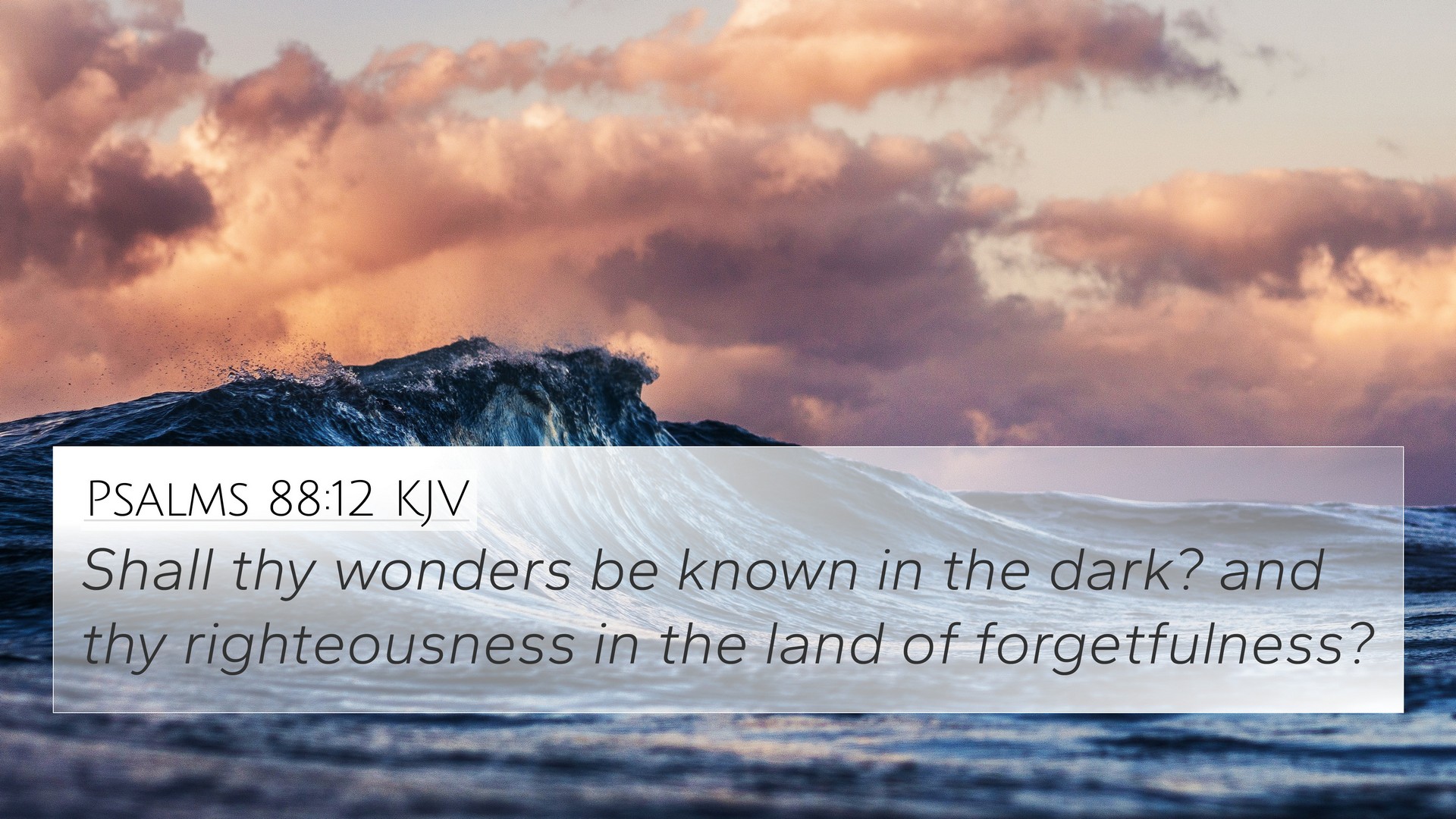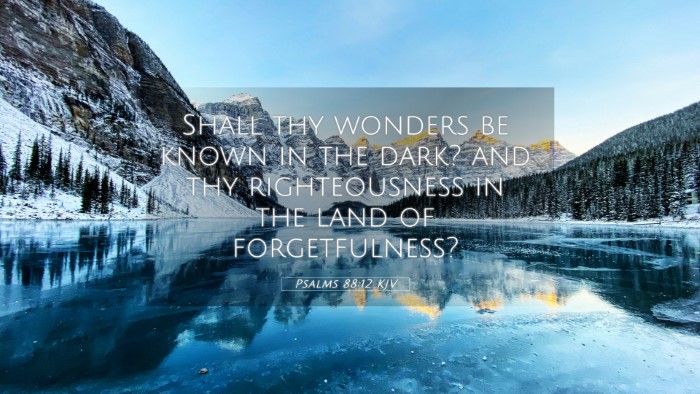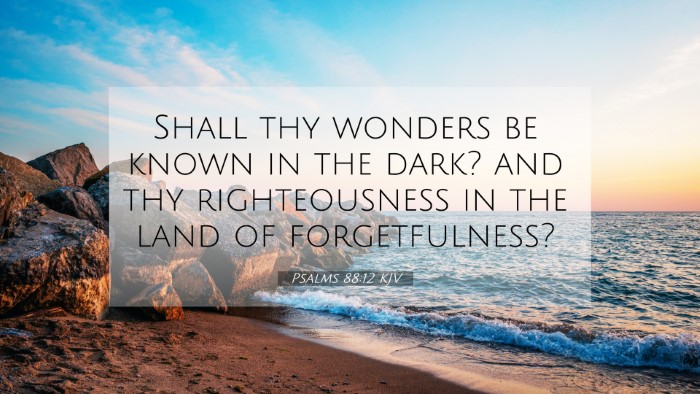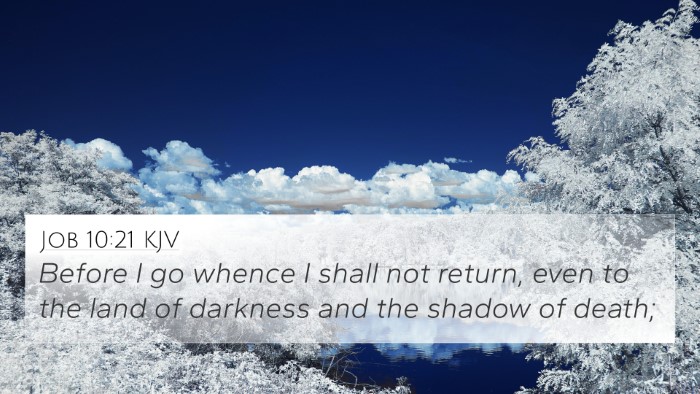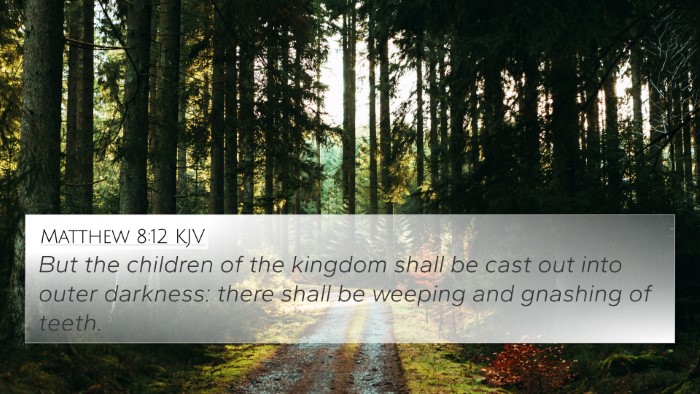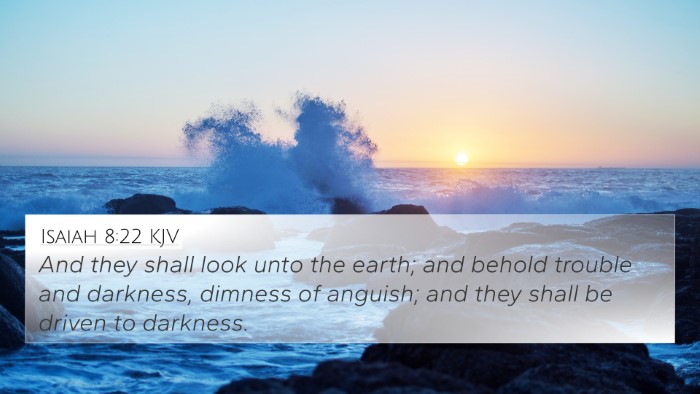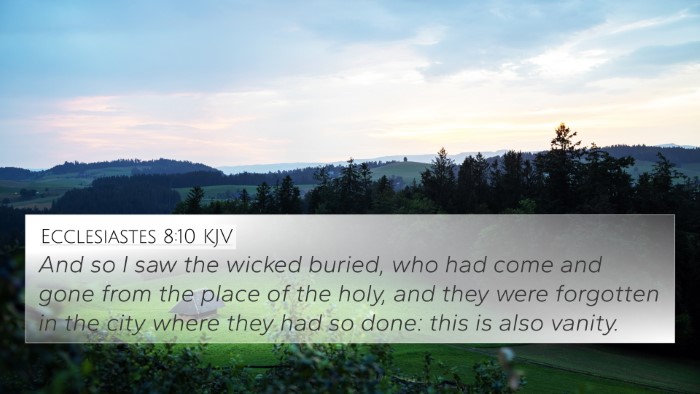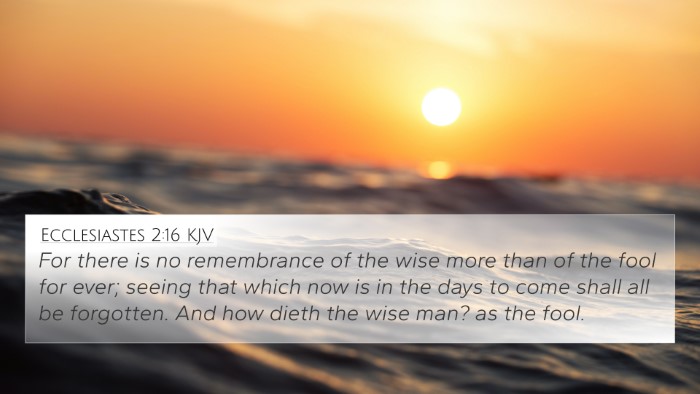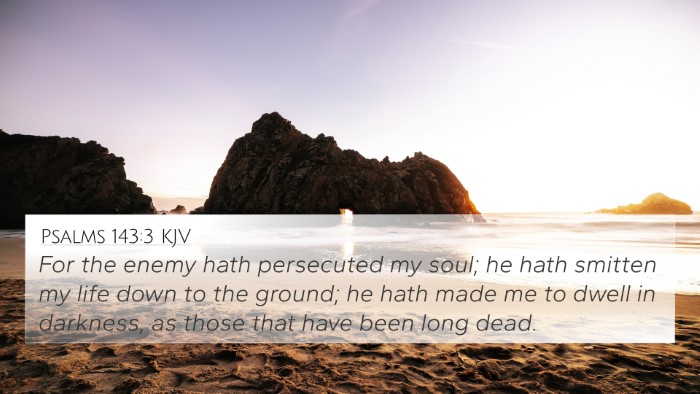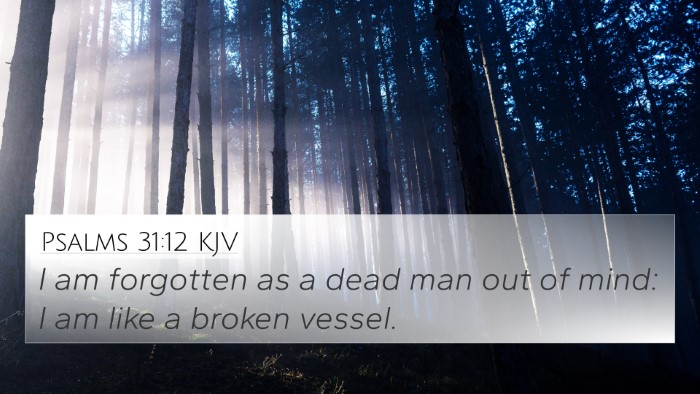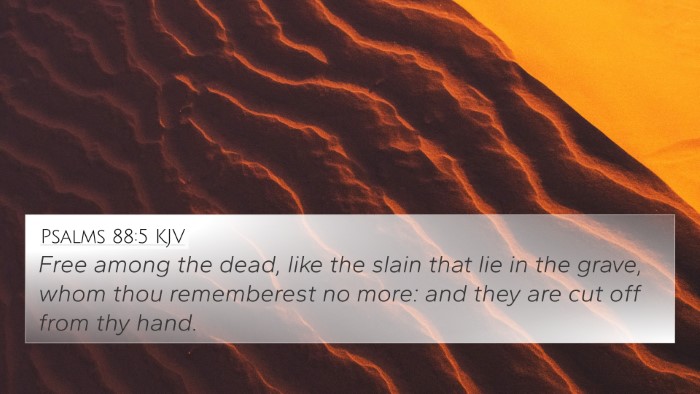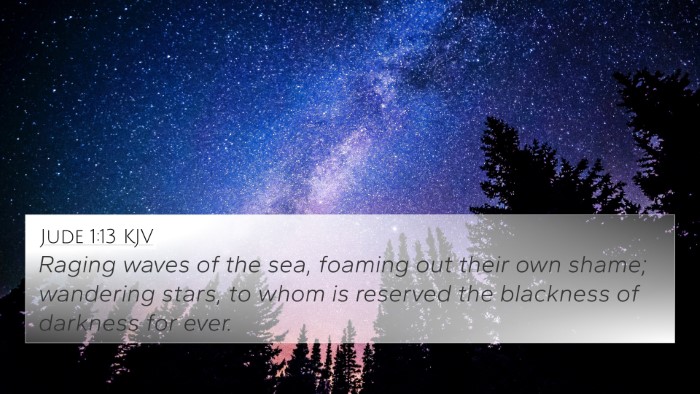Psalms 88:12 - Understanding the Verse
Psalms 88:12 says:
"Shall your wonders be known in the dark? And your righteousness in the land of forgetfulness?"
This verse is a poignant reflection on the nature of God's wonders and righteousness in the context of human forgetfulness and suffering. Below, we explore the meanings and interpretations provided by renowned public domain commentaries.
Verse Meaning and Interpretations
Matthew Henry provides insight into the deep lament of the psalmist, emphasizing the struggle between God's known wonders and the apparent absence of recognition in times of darkness and despair. The psalmist seems to question whether God's marvelous acts reach those in deep sorrow and darkness, highlighting the theme of divine silence in suffering.
Albert Barnes offers further exploration of the question posed in the verse, considering the rhetorical nature of the psalmist's inquiry. He underscores that the psalmist is not doubting God's ability to perform wonders but rather lamenting that in the midst of despair, such wonders seem obscured. This correlates to a broader human experience where suffering can overshadow awareness of divine acts.
Adam Clarke elaborates on the idea of "the land of forgetfulness," suggesting it represents the grave or the state of being in deep despair where one feels utterly forsaken. Clarke emphasizes that God's righteousness does not cease, even in such dark times; it's as if the psalmist is calling for remembrance of God's attributes amidst overwhelming grief.
Key Themes in Psalms 88:12
- The Silence of God: A dominant theme in this verse is the feeling of divine silence amidst suffering. The psalmist is reaching out to God in anguish, expressing the pain of feeling abandoned.
- The Nature of God's Wonders: The wonders of God are significant and should not be forgotten, yet the psalmist questions their recognition in times of despair.
- The Reality of Forgetfulness: Clarke's mention of "the land of forgetfulness" points to human mortality and the tendency to forget God's providence during trials.
- God's Righteousness: This verse transitions into a larger discourse about God's righteousness being evident even when perceived wonders are hidden.
Cross-References and Thematic Connections
This verse connects with various other scriptures that echo its themes of divine concern during darkness and the paradox of faith amidst suffering. Here are 8 related Bible verses:
- Psalms 34:18: “The LORD is near to the brokenhearted and saves the crushed in spirit.”
- Isaiah 45:15: “Truly, you are a God who hides himself, O God of Israel, the Savior.”
- Romans 8:28: “And we know that in all things God works for the good of those who love him, who have been called according to his purpose.”
- 2 Corinthians 4:6: “For God, who said, ‘Let light shine out of darkness,’ made his light shine in our hearts to give us the light of the knowledge of God’s glory displayed in the face of Christ.”
- Psalms 42:5: “Why are you cast down, O my soul? And why are you in turmoil within me? Hope in God; for I shall again praise him, my salvation.”
- Job 23:10: “But he knows the way that I take; when he has tried me, I shall come out as gold.”
- Philippians 4:19: “And my God will supply every need of yours according to his riches in glory in Christ Jesus.”
- Revelation 21:4: “He will wipe every tear from their eyes. There will be no more death or mourning or crying or pain, for the old order of things has passed away.”
Exploring Connections Between Bible Verses
Understanding Psalms 88:12 requires recognizing the connections that exist between this verse and the broader tapestry of Scripture. By utilizing tools for Bible cross-referencing and methods of comparative Bible verse analysis, readers can better contextualize and comprehend the messages contained within the Biblical texts.
This verse’s inquiry reflects a yearning for understanding how God's magnificence is perceived during hardships. This aligns with various other verses where individuals experience distress yet cling to hope and faith, highlighting a thematic connection of trust through trials.
Utilizing Cross-References in Biblical Studies
For those engaged in a deeper study of Scriptures, employing a Bible concordance or a cross-reference Bible study guide provides invaluable insights. This method is particularly useful in identifying the connections and parallels that exist between passages affecting the theological interpretations of despair and hope.
Conclusion
Psalms 88:12 embodies a deep theological reflection on despair and the human condition while simultaneously affirming God's attributes of wonder and righteousness. By interweaving this verse with others through a cross-reference system, believers can acquire a nuanced understanding of how individual experiences of pain relate to wider scriptural themes.
